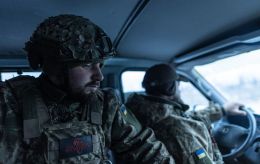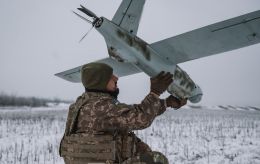Inclusivity amidst war: How a mother of a boy with cerebral palsy initiates social projects
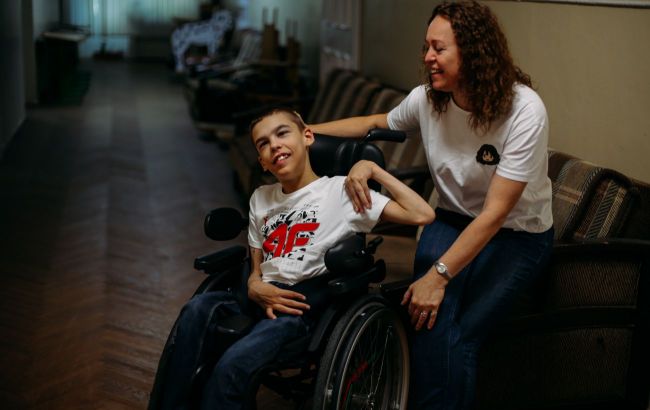 Viktoriia Panasiuk and her son (Photo: Tetiana Kyryliuk)
Viktoriia Panasiuk and her son (Photo: Tetiana Kyryliuk)
RBC-Ukraine met with a Ukrainian activist Viktoriia Panasiuk, who has been advocating for the rights of people with disabilities for 12 years, and discussed her current project on creating a new, adapted platform for all citizens of Ukraine.
Cerebral Palsy - CP - two ominous letters that just a few years ago signified a closed future for individuals grappling with this condition. The absence of ramps and elevators, non-adapted streets, and the inability to properly rehabilitate children and implement early intervention - were literally erasing any chances for a happy and emotionally fulfilling life for families raising children with disabilities. Cerebral Palsy is a condition that robs individuals of the ability to control their bodies, yet the vast majority of those affected retain their cognitive functions.
In recent years, attitudes toward people with CP and other forms of disabilities have undergone a profound transformation. Public institutions have equipped their premises for wheelchair accessibility, artists have highlighted individuals with disabilities in their works, and educators have undergone courses on inclusivity and communication guidelines with students.
Viktoriia Panasiuk has played a significant role in driving these changes. As the head of Rotary Projects, a mother to a boy with CP, a marketer, and the founder of the renowned social project "Osoblyvi" ("Special"), Viktoriia is now one of the mentors in the "Barrier-Free State" course by Diia.Digital Education. She also serves as a practical course instructor at the Higher School of Public Administration and coaches on organizational development in the social sphere. Additionally, she offers financial and career counseling.
Every week, she engages in numerous high-level discussions concerning individuals with disabilities in Ukraine. Viktoriia shared her journey and aspirations in the "Women. Inclusion. War." project by the NGO "Epiprosvita" for RBC-Ukraine.
Once, the word "disability" wasn't a part of my life
Sixteen years ago, I knew nothing about disabilities. I was involved in substantial business ventures, particularly as the commercial director of a construction company. Then Yehor was born. No one anticipated his condition. For nearly a whole year, my husband and I were left in the dark. We independently tried to figure out what was happening, losing precious time for early intervention.
I believe that ignoring the issue of potential developmental disorders in children is one of Ukraine's significant social challenges. We don't talk about the fact that children with cerebral palsy can be born to healthy parents. Consequently, parents are unprepared and find themselves in a state of confusion. The result? The child suffers.
.jpg)
Viktoriia Panasiuk and her son (Photo: Tetiana Kyryliuk)
I recall how 12 years ago, I first addressed this topic in front of a group of specialists in Kyiv. I raised the point that children essentially lack access to early intervention, which has a tremendous impact on reducing the effects of CP. Unfortunately, this intervention is still absent. CP is a lifelong journey. A significant positive aspect of this path was the rapid acceptance of Yehor. I understood that my primary task was to help my son adapt to the world around him and to create an environment conducive to his development and mobility.
During the war, we are doing more for people with disabilities than all the previous years
Amidst the process of creating accessibility in Ukraine, I witness the implementation of inclusivity during the war. Just this year, there are plans for 360 events to execute the National Strategy for Accessibility, involving 15 ministries, and finally incorporating early intervention policies. As a mother of a 16-year-old boy, I'm now concerned about the future of individuals with disabilities who are over 18.
Recently, I had a collaborative meeting with the initiators of the Center for Inclusive Education and Employment (CIIE). Here, people with disabilities are gaining additional skills for work, assistance in employment, and support in the workplace. Let's see how I can contribute and be of help. It's very important to me that my son feels happy and dignified, thus his future development and life are paramount.
Yehor attends the "Nadiia" specialized school. This year, he transitioned to the standard program and will study in the 11th grade, just like all the other kids. I believe it's our collective victory, supported by teachers and specialists. It all started with homeschooling when a teacher came to Yehor, and it was unclear how to communicate with a child who can't sit, move independently, hold objects, or speak. But over time, we began attending school once a week, and now Yehor studies at school every day. It's a true breakthrough.
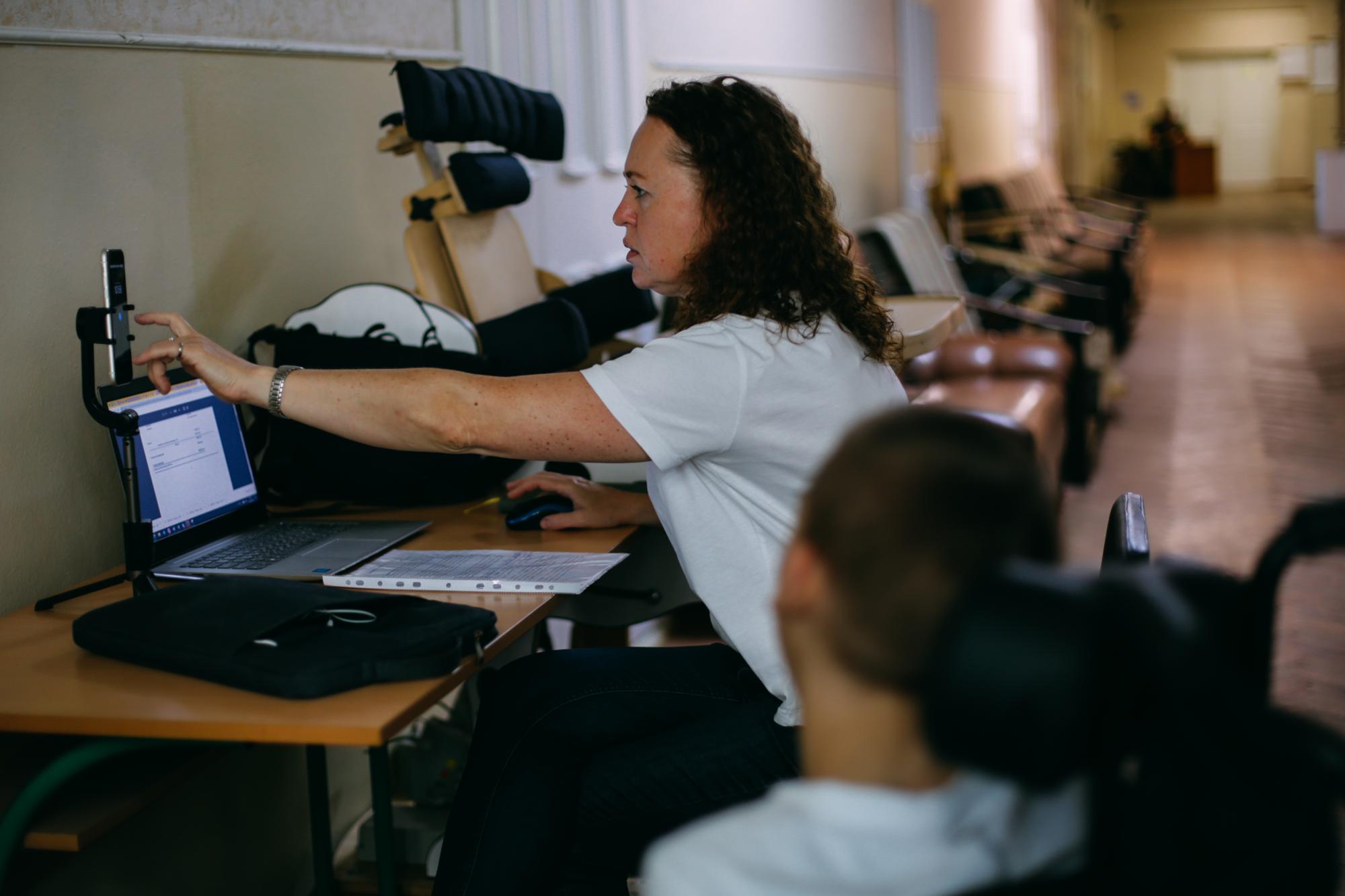
Viktoriia Panasiuk and her son (Photo: Tetiana Kyryliuk)
Coincidentally, just as Yehor began school, the reform of the boarding school system commenced. Thanks to the efforts of parents, teachers, and administration, we successfully transformed the specialized school from two groups in a kindergarten into a fully equipped facility with a gym, cafeteria, and workshops.
What struck me the most wasn't the year-long struggle to advocate for the rights of disabled children on various levels, emphasizing the importance of daily presence and education rather than a life in institutions. It was the fact that there were parents who wanted their children to remain in institutions around the clock, permanently.
We did a lot of work to demonstrate and prove: a child needs to return home every day, receiving parental care, nurturing, and love. Only then they are capable of development and achievement.
Our children got into the vortex of change
Comparing the situation from 16 years ago to today, I can certainly observe positive changes in the attitudes and observance of the rights of people with disabilities. However, we still have a long way to go before reaching a satisfactory social sphere.
Let's look at, for instance, the provision of rehabilitation equipment services. In practice, these services are often inadequate at best. This gives rise to a plethora of problems, including improper posture and deformations of internal organs, which greatly impede a person's ability to move independently.
In reality, occupational therapists and service teams should be in place to customize equipment to individual needs, and adjust and adapt it as a person grows and undergoes rehabilitation, modifying settings accordingly.
The same can be said for the rehabilitation system, which is only now, this year, starting to align with global trends. For instance, we are finally shifting away from treating CP with massages and electroprocedures, as these methods prove inadequate. We are transitioning toward evidence-based medical practices.
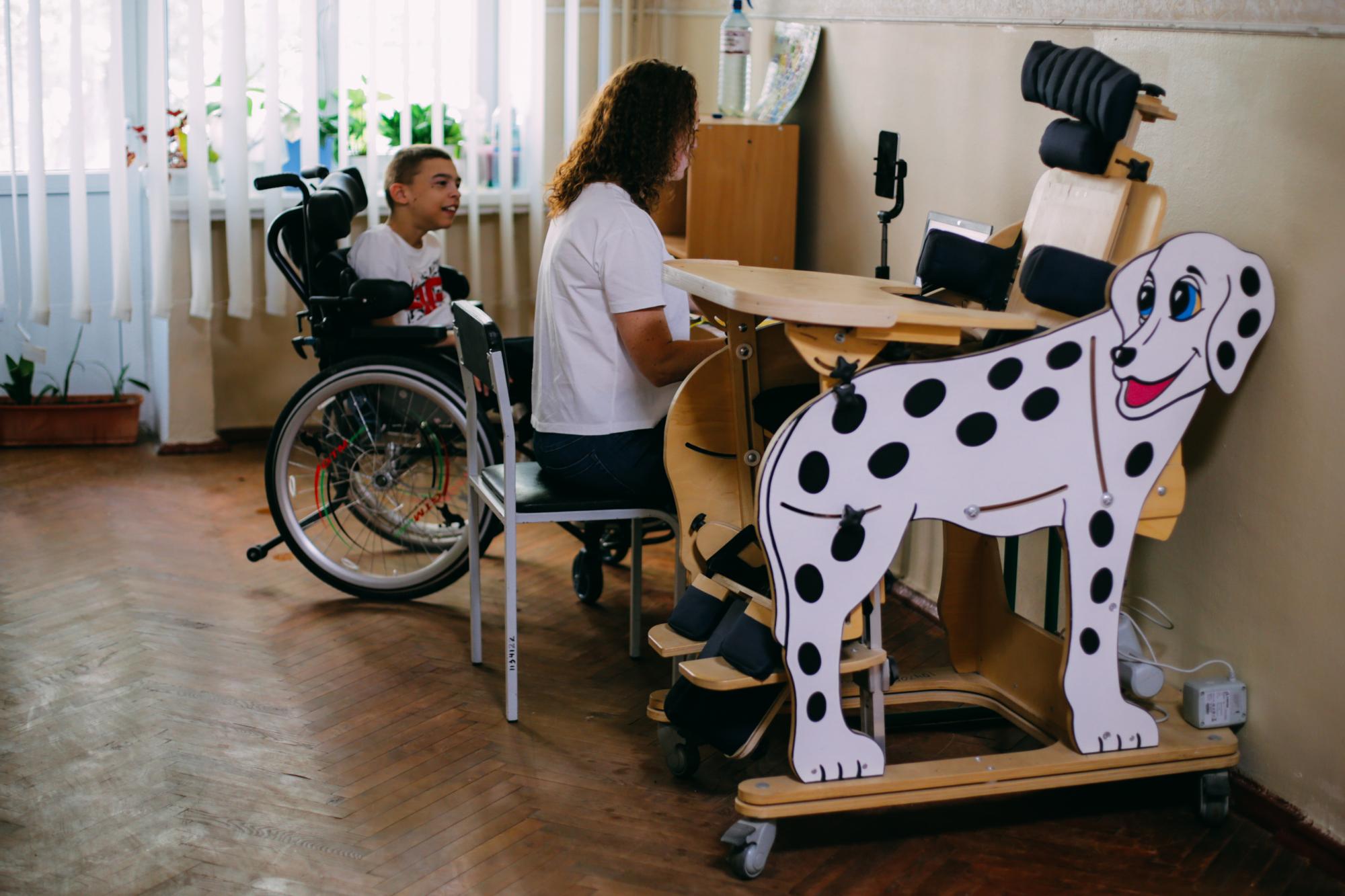
Viktoriia Panasiuk and her son (Photo: Tetiana Kyryliuk)
During the "pre-pandemic" period, we used to travel abroad for rehabilitation. It was there that Yehor made his first steps, though his body wasn't fully ready. We thought it was, but it turned out not to be the case. The strain resulted in a deterioration of his physical condition. However, it also made us realize the potential progress our son could have achieved over the years if he had access to all necessary specialists and a well-structured individual rehabilitation system.
And what about freedom of movement? To use the subway, you need to call in advance and inform them of your travel plans so that subway staff can assist and accompany you. The notion of simply independently entering the subway and traveling to a specific location in Kyiv is impossible. All of this drastically lowers the self-esteem of people with disabilities, making them feel helpless and dependent. This is not how it should be.
"Osoblyvi" project
As I walked this path of helping my child, I started assisting other families raising children with disabilities. A community formed, and eventually the social project "Osoblyvi" emerged. It aims to socialize and enhance the quality of life for children, youth, individuals with disabilities, and their families.
The project's main objective is to open up the world to our children with disabilities, thereby opening the world of children and individuals with disabilities to us. This is true inclusion. Visiting theaters, museums, and exhibitions, and organizing educational events, workshops, and systematic courses facilitate direct communication between diverse individuals, fostering synergy and growth.
I remember a little girl once asked me: "Why is that big boy in a wheelchair?" I explained that Yehor is still learning to walk, but he attends school and loves playing ball. So, if she let him play a bit with the ball, he would be really happy. The girl understood all of this without trauma, fear, or tears.
Some are learning to walk in a year, while for others it takes 16 years, and there's nothing extraordinary about it. Children, in general, are quick to comprehend if things are explained calmly to them. It's clear that the war demands a swifter adaptation and optimization of communication skills. We're already aware of about 27,000 veterans with disabilities. But how many haven't been officially recognized? How many have been affected due to conflict? Looking at Ukraine as a whole, in 2022 there were 2.7 million persons with disabilities, of which 165,000 were children.
Clearly, war has caused migration, but we understand that the overarching trend concerning people with disabilities persists. They will always remain a significant part of society, and we should interact with them, adhering to the core principle of "a person and their dignity first, and then disability."
Invisible moms
This is a nightmare. I can't imagine my life devoid of self-fulfillment. I cannot fathom an existence devoid of personal actualization. Each day, I engage in learning, accumulating several new specializations, ceaselessly refining myself. At this very moment, I'm immersed in a rehabilitation management course. Yet, I'm not everyone, and everyone is not me.
Continuously, I encounter mothers coerced into living lives in place of their children. They've assumed roles of aides, chauffeurs, educators, guards, caregivers, and nurturers, due to the absence of support systems for their children with disabilities. Essentially, a mother ought to provide love and care for her child, not be everything to them.
Parents have been stripped of the possibility of self-realization and personal lives. I cannot accept this fate. I comprehend that someday, my child will live without me. I strive to prepare for those times even now.
This impetus drove me to master financial consultancy, which I found so captivating that I now consult and operate as an individual entrepreneur. Simultaneously, I delve into investments and other ways for generating passive income, including securing Yehor's future. I think about his caregivers and other intricate matters. I ardently desire to create educational courses for mothers, to help them emerge from the shadows and cease being invisible.
In my immediate plans, I aim to establish more social initiatives, amplify their impact, and transform the landscape of inclusivity in Ukraine.
If you wish to learn more about and support the "Osoblyvi" social project, you can always reach out to Viktoriia at https://www.facebook.com/osoblivi or via +38 0956290029.
Project sponsored by NGO "Epiprosvita"
Text authors: Niia Nikel, Anastasiia Rokytna
Photographer: Tetiana Kyryliuk


